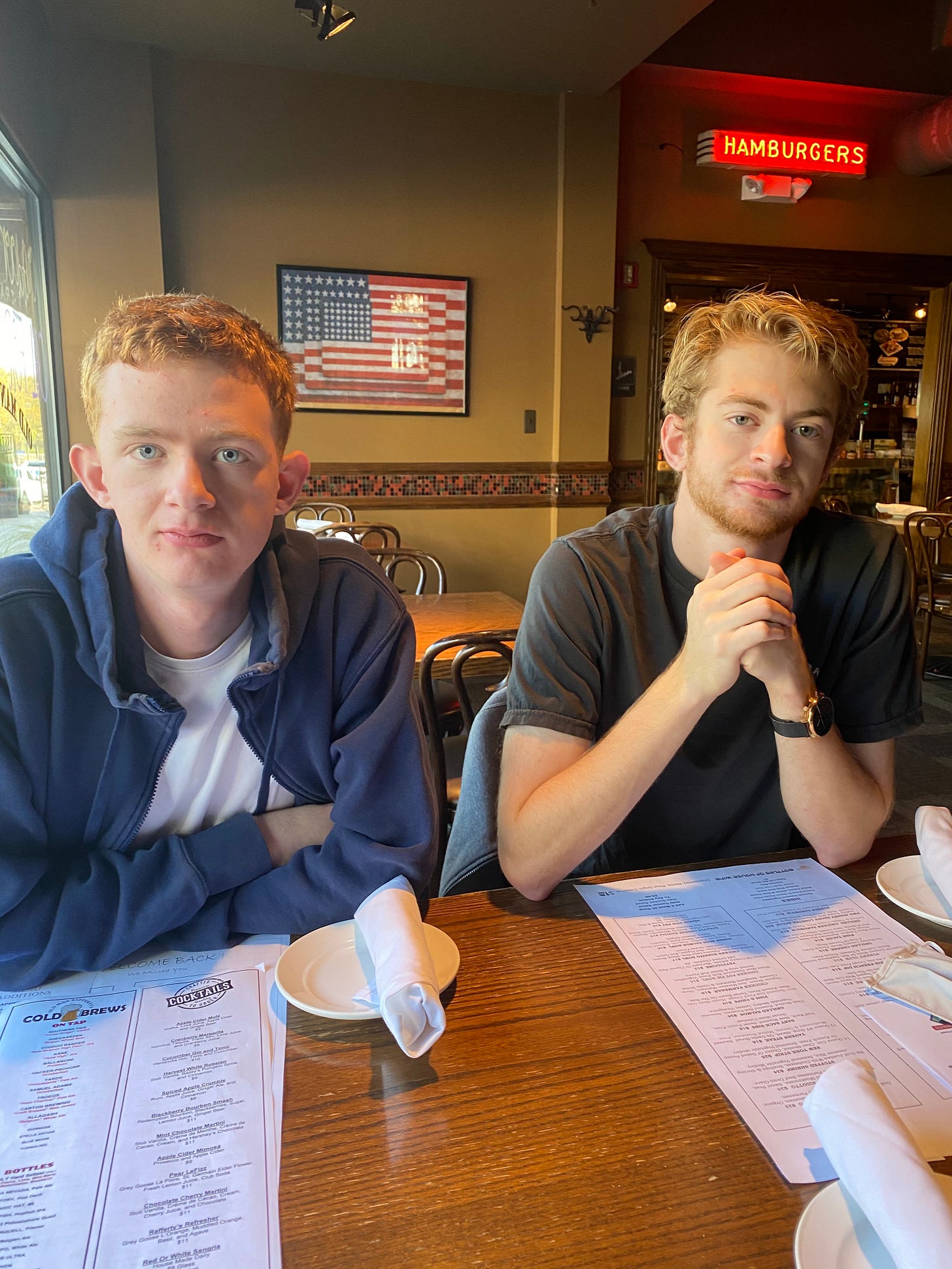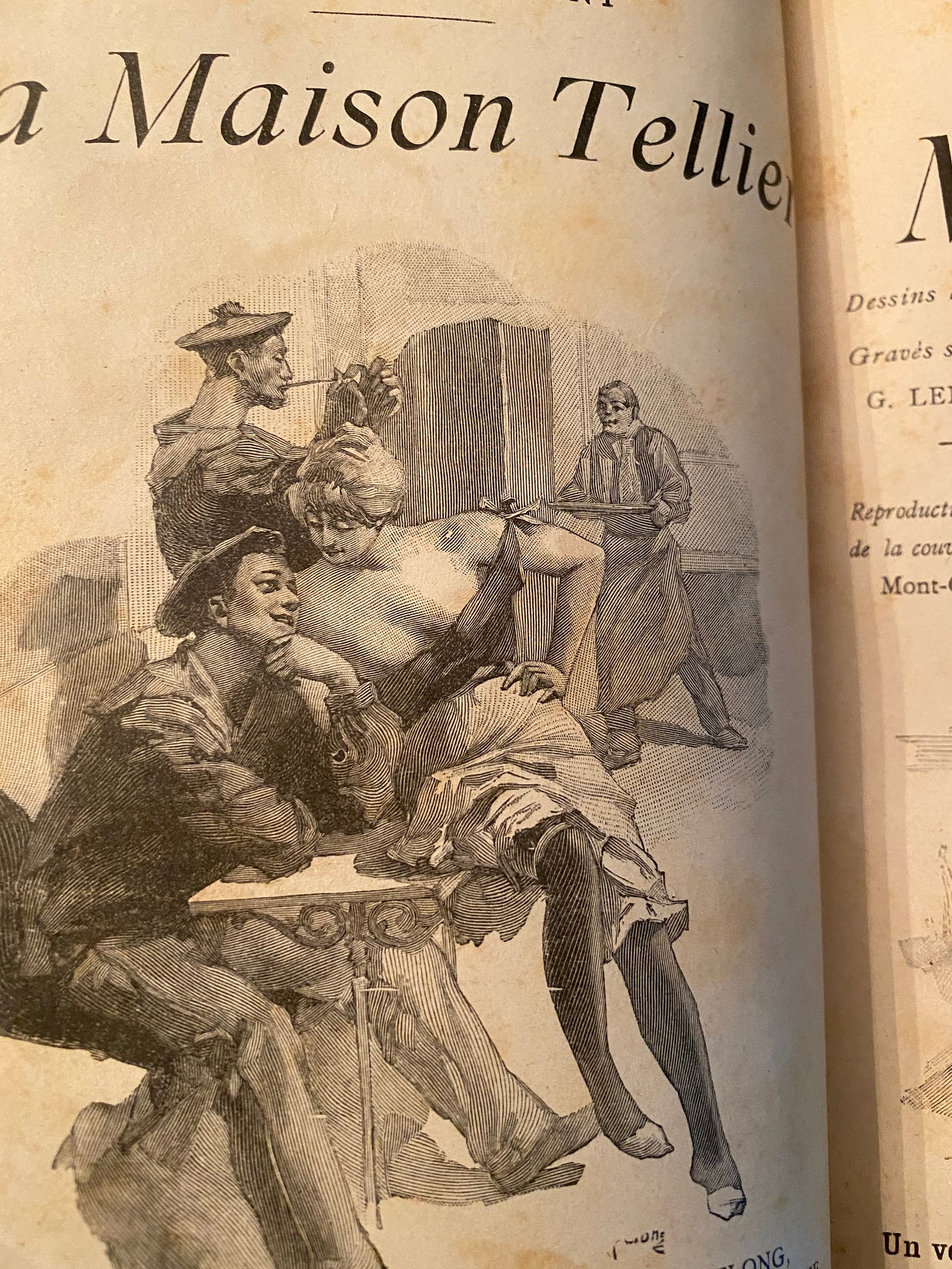Growing Up When the World Is Stalled
Apt. 11D
Laura McKenna's Publications and Posts
Growing Up When the World Is Stalled
October 23, 2020
In the midst of a world-wide pandemic with growing infection rates and schools that open and shut like the eyes of a flirtatious girl, I am trying my damndest to get my kids through life.
My college kid is presently lounging across our sofa working on an assignment for his Western Civ class. When we visited him for brunch last Sunday, the deserted and depressing campus set off parental alarm bells. We were concerned that he was too isolated in his semi-occupied off-campus dorm, so we made him come home for a week for a sanity-check.
The campus also set off consumer alarm bells. We are spending loads of money for laptop classes. We’re paying for a library that is shut. We are paying for a student center that is shut. We are even paying for printer paper in computer labs, which are also shut. It’s like we are paying for two dozen eggs and only getting five. Perhaps it was time for a gap semester.
After a weekend of debate, we decided to keep him at college even though he is not getting the full experience, because he needs to move on with his life. We don’t want him to delay the next step of his life -- getting a first job and finding his place in the world -- while we wait for higher education to get its act together.
My high school kid, the guy with high functioning autism, is in an even more precarious spot. He’s a high school senior. Right now, the typical kid in my town is taking her SATs, writing the college essay, taking virtual tours of campuses, and chasing teachers for recommendations. What happens to kids who are not going to a four-year college? Until this year, I had no idea. I know how to get a kid into college. I have no idea what to do with a kid who isn’t going down that route.
Part of our problem is that Ian is very smart, despite his disabilities. He took his SATs last week, and I’m sure that he did fine at least on the math part. He’s getting all A’s in his Trig class right now. But, at the end of the day, he still has autism, which means there is absolutely no way that he could survive in the state of nature that is a college dorm.
Weirdly enough, if he had an intellectual disability, there would be paths for him. Now, none of them are fantastic, but they do exist. One popular route for kids with intellectual disabilities is to stay in the school district until 21, and have the district teach them life-skills, like doing dishes and making a ham sandwich, and work skills, like stacking shampoo in CVS or pushing shopping carts at the supermarket. Ian is not going to fit in with this group.
He could get a certificate in computer programming at the local community college, but I am not sure if he has the social skills at this moment to manage those classes without support. Without the protection of an IEP, community colleges tend to boot out kids like mine.
To get some guidance, we will go to Yale for a full evaluation of Ian. We’ll sit behind a two-way mirror watching their psychologists and neurologists of the Child Study Team measure his IQ and social skills. When they evaluated him four years ago, they provided us with quantitative data that broke him out of his special education jail, where he was learning nothing. This time, we are hoping that they can point us towards post-high school programs that might make sense for him.
Setting up this evaluation was a major hassle. It took days to get pre-approval from my health insurance company, so they’ll cover part of the $6K price tag. I am coordinating the tests with the school district, which is in the process of doing their own evaluations; we can’t have him take the same test twice. All this is complicated by the fact that a teacher at his school tested positive for COVID, which triggered a shutdown of the entire school district. He’s back at home until next week.
So, in November, we will drive to New Haven for the two-day exam. Then, there will be several zoom meetings with the school district as they complete their own exam of Ian. After that, we will visit programs to find something that will work for Ian next year. Hopefully, we’ll find something that isn’t in a basement of a dirty building with sad kids, who are spinning and hand flapping by themselves. (It’s disgusting what happens to disabled people in our society. Everybody should see those places.)
The whole process of finding a place for Ian would be horrible no matter what. It's just now, everything is harder. It's hard to visit programs and schedule meetings and arrange for evaluations. It's double the misery.
My kids are growing in the midst of devastation like flowers in the cracks of a city sidewalk. Their lives cannot pause, because the rest of the world is on hold. In my house, teens are becoming adults. In other homes, babies are getting first teeth and learning to walk, tweens are getting first crushes. Their developing brains don’t care that the government is broken. They are growing up, despite the failure of adults to manage this disease. Hopefully, at some point, they will have the same opportunities and rich experiences that we enjoyed at their ages.
Snapshots


Links

On the blog, I wrote about:

